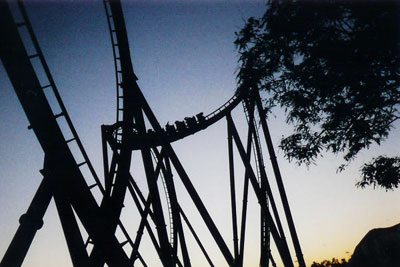All Nonfiction
- Bullying
- Books
- Academic
- Author Interviews
- Celebrity interviews
- College Articles
- College Essays
- Educator of the Year
- Heroes
- Interviews
- Memoir
- Personal Experience
- Sports
- Travel & Culture
All Opinions
- Bullying
- Current Events / Politics
- Discrimination
- Drugs / Alcohol / Smoking
- Entertainment / Celebrities
- Environment
- Love / Relationships
- Movies / Music / TV
- Pop Culture / Trends
- School / College
- Social Issues / Civics
- Spirituality / Religion
- Sports / Hobbies
All Hot Topics
- Bullying
- Community Service
- Environment
- Health
- Letters to the Editor
- Pride & Prejudice
- What Matters
- Back
Summer Guide
- Program Links
- Program Reviews
- Back
College Guide
- College Links
- College Reviews
- College Essays
- College Articles
- Back
Rebel With a Cause
Adventure seeking and poor judgment go well together when it comes to teenagers. During their adolescence, many teenagers push the boundaries of suitable behavior. Some take it to extremes, engaging in reckless behavior such as drinking alcohol or taking drugs. They are not heedful of their impulsive actions and disregard the dire consequences. They are not in the least chary of the risks involved. Adolescents yearn to be independent, and they are eager to develop their own identity outside their family. Unfortunately, for many teens this desire will develop into uncontrolled behavior. While it is important for parents to show affection and support for their teenagers, they should also conscientiously explain the clear dangers and consequences of thoughtless behavior.
The teenager's brain plays a large part in their risky choices. Adolescents are attracted to reckless behavior because of their developing brain. This development makes them more likely than adults to participate in and enjoy risk-taking situations. Efficient control of impetuous acts is not fully developed until adulthood. Smoking and drinking are popular thrill-seeking choices because they are seen as an introduction to adulthood and a way for adolescents to emphasize their independence. Adolescents are also influenced by their parents and peers. If their parents or peers engage in reckless behavior, teenagers may feel that this is acceptable. Most teenagers do not like having rules and expectations to live by. However, teenagers do often respect these rules, and clear rules help them know that their parents care about them. Ultimately, rules can also encourage responsible behavior.
It is essential to remind teenagers about the consequences of their behavior. By addressing recklessness and unruliness early on, parents can help prevent their adolescent’s behavior from escalating. Parents should meticulously discuss with their teenager the type of behavior they expect from them. Since teenagers lack the same cognitive reasoning as circumspect adults, explanations of the dreadful consequences resulting from reckless behavior should be discussed. By scrupulously establishing clear rules and enforcing reasonable consequences for breaking those rules, parents may be able to limit some irresponsibility in teenagers. Parents should vigilantly take care of their teenagers and be wary of their thoughts, actions, and emotions. Constantly being attentive and alert of a teenager’s actions can be a daunting and exacting task, but it is for the teenager’s own benefit. Thus, it is a parent’s responsibility to gingerly care for their teenagers and make sure they live a healthy life and stay safe from an unfortunate premature death.

Similar Articles
JOIN THE DISCUSSION
This article has 0 comments.
